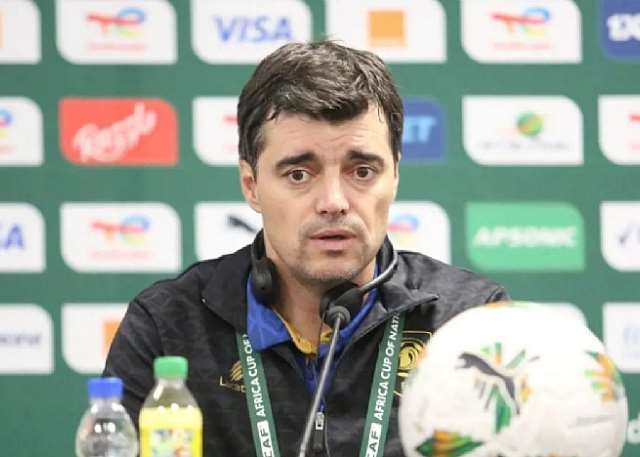Angola’s head coach, Pedro Gonçalves, has voiced his disappointment over the substandard pitch conditions his team encountered during their recent match against the Black Stars of Ghana. Despite guiding Angola to a crucial victory, Gonçalves was critical of the playing surface, which he felt did not meet the expectations for a football powerhouse like Ghana.
Speaking after the match, Gonçalves did not hold back his thoughts on the pitch quality.
“I think a country like Ghana should have a better pitch,” he said.
The Portuguese coach emphasized the need for better infrastructure to enhance the quality of football on the continent, particularly in nations with rich footballing traditions such as Ghana.
The match, which saw Angola triumph in a hard-fought contest, was marred by a pitch that Gonçalves believed hindered the players’ ability to perform at their best.
While acknowledging his team’s resilience in adapting to the less-than-ideal conditions, he stressed that top-quality playing surfaces are essential for footballers to showcase their skills.
Despite the result, Gonçalves was clear that such conditions should not be the norm, particularly in a country that has a deep footballing heritage and a strong presence on the international stage.
“Players need access to top-tier facilities to bring out their best performances,” he added, underscoring the link between infrastructure and the development of football in Africa.
Gonçalves praised his players for their ability to adapt and secure a result under difficult circumstances, but his message was clear: the pitch conditions need to improve if African football is to continue growing and competing at the highest levels.
His comments have since sparked debate within football circles, both in Ghana and across the continent, with many echoing his concerns about the state of sports infrastructure in Ghana.
Calls for improvement have grown louder, with stakeholders pointing out that high-quality pitches are not only crucial for player development but also for hosting international fixtures that put African football in the global spotlight.
Ghana, which has long been regarded as one of Africa’s footballing powerhouses, faces increased pressure to address these concerns.
Many fans and pundits agree that improving sports infrastructure is key to maintaining the country’s competitive edge and ensuring that the next generation of footballers has the best possible environment to thrive.
As the conversation continues, Gonçalves’ remarks serve as a reminder that while talent and tactics are critical to football success, the importance of proper facilities should not be overlooked.
The call for change is not just about enhancing the game for visiting teams like Angola but also about fostering an environment where Ghanaian football can continue to flourish on the world stage.











